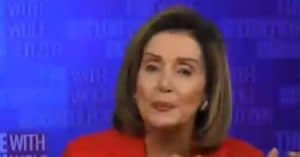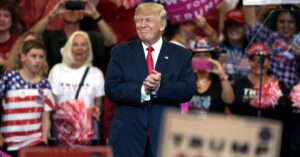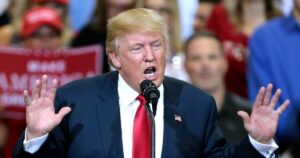Trump imposes $100K fee on H1-B visas to curb foreign labor
Hold onto your wallets, folks—President Trump just dropped a financial bombshell on the H1-B visa program that’s sure to make corporate HR departments sweat.
On Friday, Trump signed two executive orders shaking up the H1-B visa system, slapping a hefty $100,000 annual fee on applications and renewals while introducing a pricey “Gold Card” fast-track option for those with deep pockets.
Let’s start with the big sticker shock: a $100,000 yearly fee now applies to every H1-B visa application, including renewals, and must be paid for six straight years.
Sticker Shock for H1-B Applicants
This isn’t pocket change, and the administration isn’t shy about why they’re doing it—limiting the applicant pool to those who can afford the high rollers’ table.
The goal? Push companies to hire and train American workers instead of relying on foreign talent, a move that’s long overdue for many who feel U.S. jobs slip away too easily.
Commerce Secretary Howard Lutnick didn’t mince words, saying, “Train Americans.” He’s got a point—why not invest in homegrown talent from our top universities instead of outsourcing opportunity?
Gold Card: Pay to Play
Then there’s the second order, offering a so-called “Gold Card” for expedited processing at a jaw-dropping $1 million per individual, or $2 million if a corporation foots the bill.
President Trump boasted, “The Gold Card will be taking in hundreds of billions.” If that’s true, it’s a clever way to fund tax cuts and chip away at national debt, though one wonders if it’s more flash than substance.
He added, “It’s going to be a fantastic thing.” Fantastic for whom, exactly—only the elite few who can shell out seven figures for a shortcut?
Protecting American Jobs First
The White House argues the current H1-B setup lets companies exploit cheaper foreign labor, dragging down wages for American workers in the process.
They’re not wrong to worry—when tech firms, which rely on H1-B visas for 60% of computer-related jobs per Newsweek estimates, prioritize overseas hires, it sends a discouraging signal to U.S. students eyeing STEM careers.
Bloomberg reports the administration sees this as a national security risk, and frankly, it’s hard to argue when our future innovators might skip science and tech altogether.
A Wake-Up Call for Tech Giants
Lutnick doubled down, stating, “Either the person is very valuable to the company and America, or they’re going to depart.” It’s a blunt challenge to corporations: prove the worth, or hire locally.
Trump echoed the sentiment, noting companies “need people of expertise.” Fair enough, but let’s hope this doesn’t just turn into a pay-to-play scheme where only the richest get a seat at the table.
Turns out, actions have consequences, and this policy might just force some tough boardroom decisions—will tech giants pay the premium, or finally look closer to home for talent? It’s a gamble, but one that could reshape the workforce in favor of American grads if it pays off.




